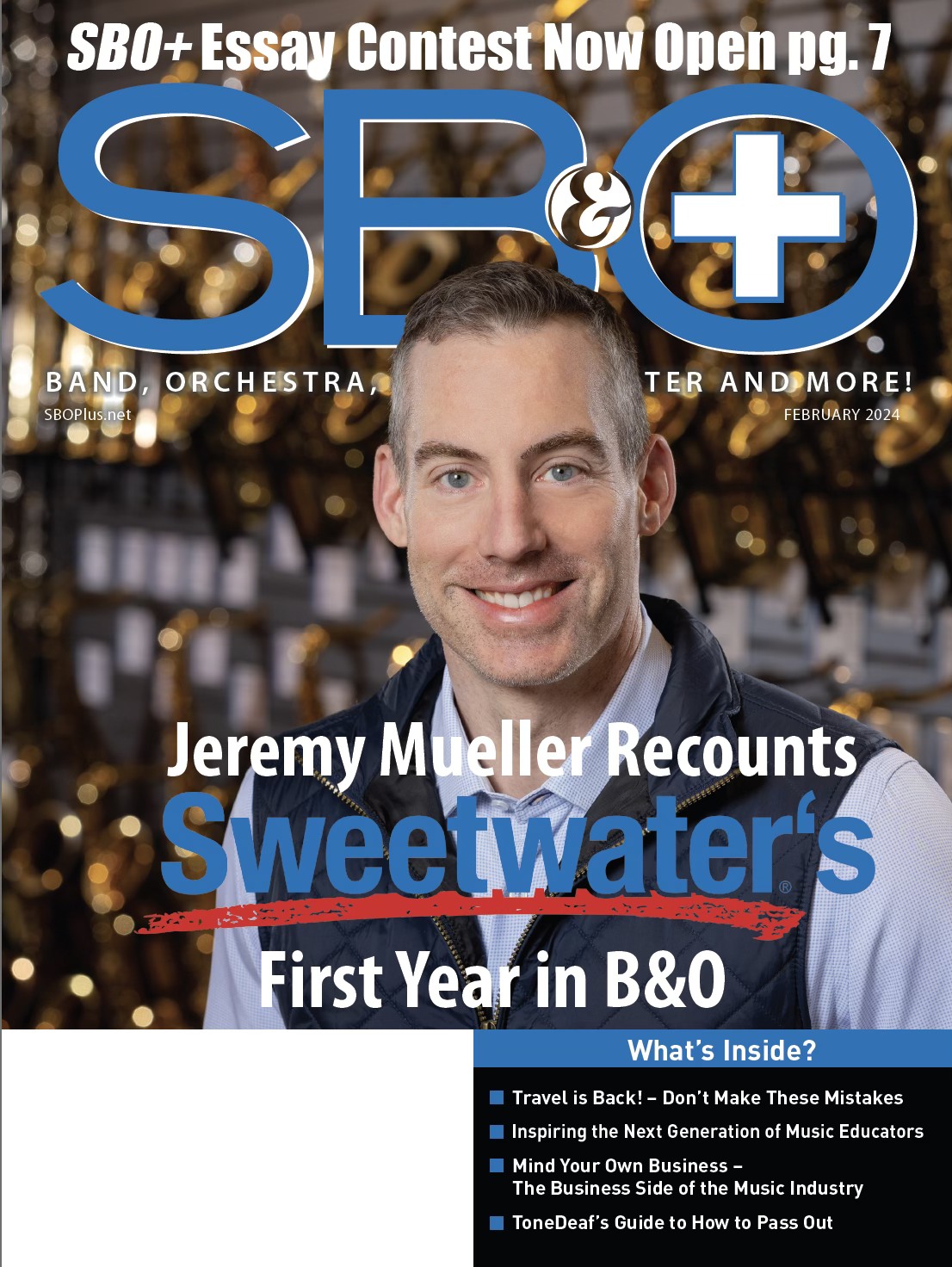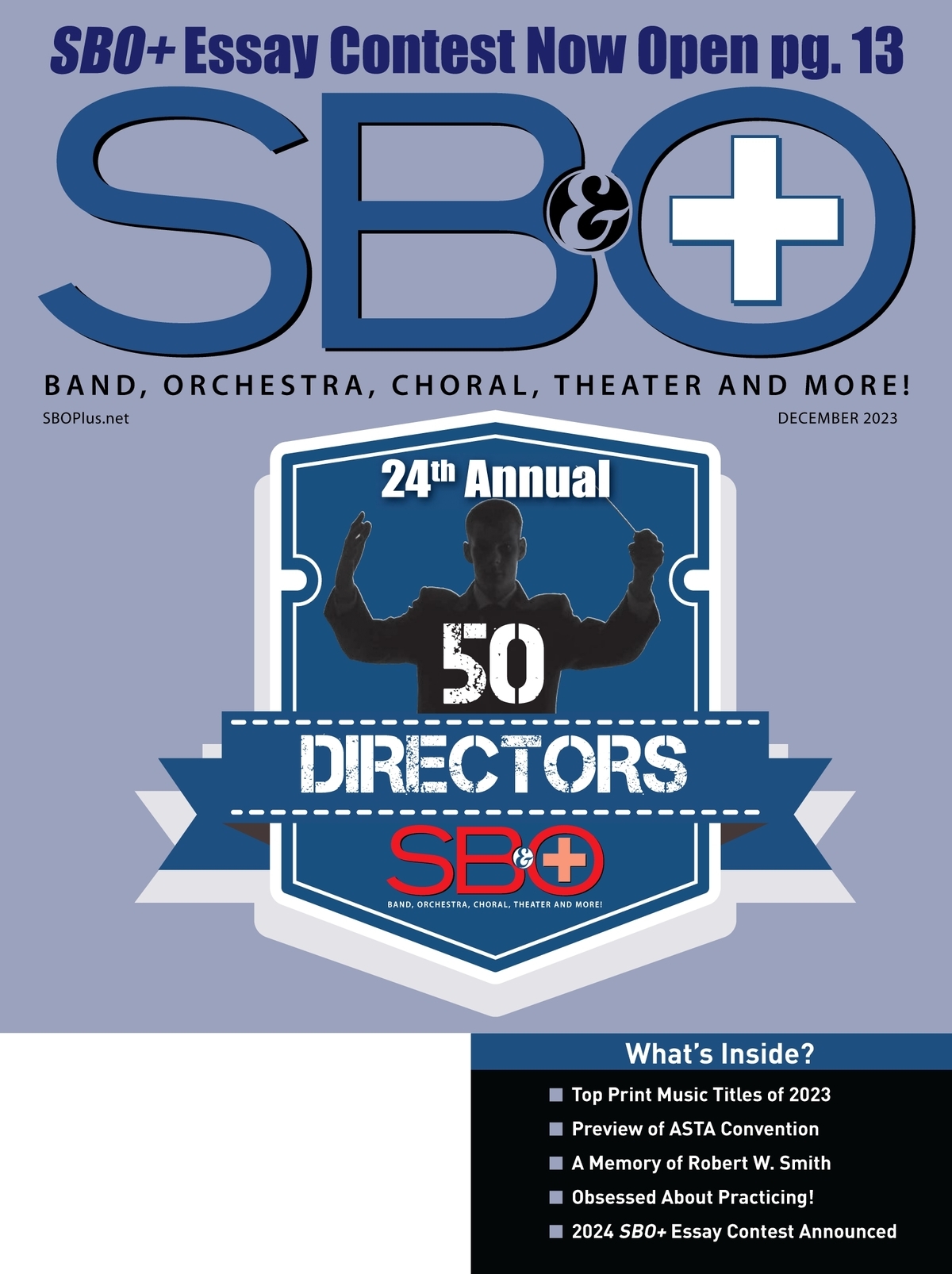EDUCATORS SUBSCRIBE FOR AS LOW AS $0.00! CLICK HERE!
By John C. Hughes
The French language’s innate lyricism and beauty has inspired generations of composers. Below, I’ve selected some of my favorite settings of French texts for choirs. Of course, I could not include all my favorites and had to omit Debussy’s “Trois Chansons de Charles d’Orléans,” which are well worth the challenge! While French pronunciation can be intimidating for many of us, valuable resources exist. John Glenn Paton’s new book Gateway to French Diction: A Guide for Singers (Alfred Music Publishing, 2012) is well organized and very easy to use. The book also includes a CD of phrases and song texts spoken by a native French speaker.
TWO-PART
“En Roulant Ma Boule”
arr. Cristi Cary Miller
Hal Leonard
Easy
Christi Cary Miller has created a lively arrangement of this French Canadian song. Verses can be sung in either English or French (or some combination), allowing the performer to vary and adapt the piece to one’s unique situation. The piano part is helpful while still having its own artistic merit. The fast tempo and playful text allow this piece to function well at the beginning or end of a concert. A preview of the score and an audio recording are available.
goo.gl/qEC2U
 “J’entends Le Moulin”
“J’entends Le Moulin”
arr. Emily Crocker
Hal Leonard
Easy
“J’entends Le Moulin” is a famous French Canadian folksong from the Quebec province. The flowing piano accompaniment wonderfully portrays the text, “I hear the windmill (tique tique taque).” The infectious melody and simple harmonies allow emerging ensembles to master this piece, even with its French text. Throughout the arrangement, Crocker alternates between English and French, which helps both the singers and audience follow the story. The score is very useful with IPA guides and information about the folksong. An accompaniment CD is available for purchase.
goo.gl/hmdoI
SSA
“Au Joli Jeu,” from Two European Madrigals
Clément Janequin,arr. Jerry Weseley Harris
Walton
Medium-Advanced
Clément Janequin (1472–1587) is a famous composer known primarily for his programmatic chansons. “Au Joli Jeu” is a wonderful example of French Renaissance music and contains both polyphonic and homophonic textures. Lynne Gackle, the editor of the choral series from which this piece comes, has done a wonderful job providing a clean score with helpful information. The work is not without challenges: it is unaccompanied and requires significant independent singing. An audio recording is available.
goo.gl/3Y0Ln
TTB
“Viva Tutti”
Anonymous 18th century,ed. Ralph Hunter
Lawson-Gould/Alfred
Medium
Young men will enjoy the raucous nature of “Viva Tutti.” At 200 bpm, the piece flies by with patter-like text setting and unexpected rhythmic accents. This piece truly requires three independent voice parts, but the intrigue of the piece will inspire the singers to work hard. “Viva Tutti” is the perfect way to feature a special group of tenors and basses in a fun, upbeat piece.
TTBB
“Vive l’Amour”
arr. Robert Boyd
Colla Voce
Medium-Advanced
Composed in 2006 for an Illinois high school honor choir festival, Boyd’s arrangement of this traditional French song has enjoyed many subsequent performances. “Vive l’Amour” is a wonderful piece for men’s voices and extols the virtue of friendship and camaraderie. To truly showcase a talented and tight-knit group of tenors and basses, program this work. While not overly difficult, this piece is truly for four parts, making it accessible only to advanced singers. The piano accompaniment is supportive and adds to the nature of the work. A score preview and an audio recording are available.
goo.gl/fD0VB
THREE-PART
 “Mes Chants”
“Mes Chants”
Victor Hugo, arr. Jerry Estes
Shawnee
Medium-Easy
Jerry Estes adapted Victor Hugo’s timeless text and composed a hauntingly beautiful melody for it. The first and last section has French text, and the middle section has an English text. The descant for select voices allows conductors to feature students. The vocal ranges are appropriate for developing voices.
goo.gl/f54e6
SAB
“Chantez Alleluia!”
Dave and Jean Perry
Heritage/Lorenz
Medium
Also available in a two-part setting, this piece by Dave and Jean Perry is well crafted for developing voices. The repetitive text of only a few words serves as a good introduction to singing in French. “Chantez Alleluia!” has a brisk tempo which is further enlivened by the buoyant piano accompaniment. A score preview and audio recording are available.
goo.gl/mu3dA
SATB
 Oxford Book of French Chansons
Oxford Book of French Chansons
ed. Frank Dobbins
Oxford
Medium
The Renaissance was a fertile period for composition in France. While many chansons are available for purchase separately, why not purchase a collection of the most popular works from the era? Perfect for high schools with a well-established madrigal choir, a set of these books, while not inexpensive, would serve as a tremendous resource and an investment in the program for years to come. Choose from the myriad of wonderful pieces contained in this collection, including: “Tant que vivrai” by Sermisy, “Bonjour mon cœur” by Lassus, or my favorite, “Revoici venir du printemps” by le Jeune.
“J’entends le Moulin”
arr. Donald Patriquin
earthsongs
Medium-Advanced
While many people might associate “J’entends le Moulin” with a children’s playsong, Patriquin’s arrangement is quite advanced. Using un-pitched speaking parts, snapping, clapping, and foot stamps, this arrangement is far from ordinary. The easily learned melody makes learning the work accessible for choirs; however, the piano part is quite demanding – so much so that it is printed separately. Feature a wonderful accompanist on this fun piece; just make sure to give it to him/her well in advance! This piece is also available in a two-part arrangement. The choral score, piano part, and full score are sold separately.
goo.gl/kFwNx
John C. Hughes is a versatile choral musician and pedagogue, drawing from experience as a K-12 teacher, collegiate conductor, and church musician. Presently, Hughes is pursuing the D.M.A. in Choral Conducting and Pedagogy at The University of Iowa, as well as serving as music director at The Congregational United Church of Christ of Iowa City. Please contact him directly at his website: www.johnchughes.com.







